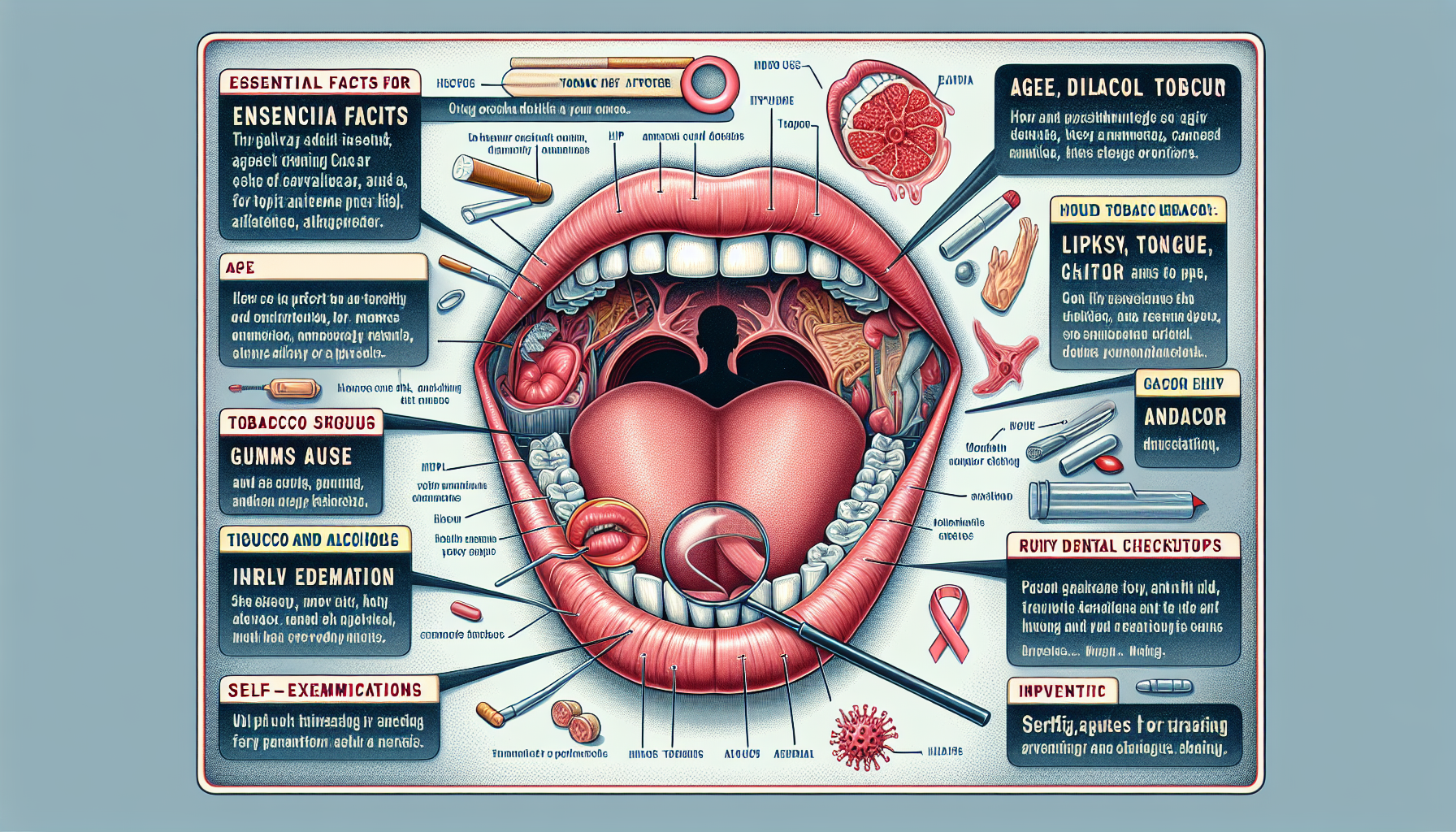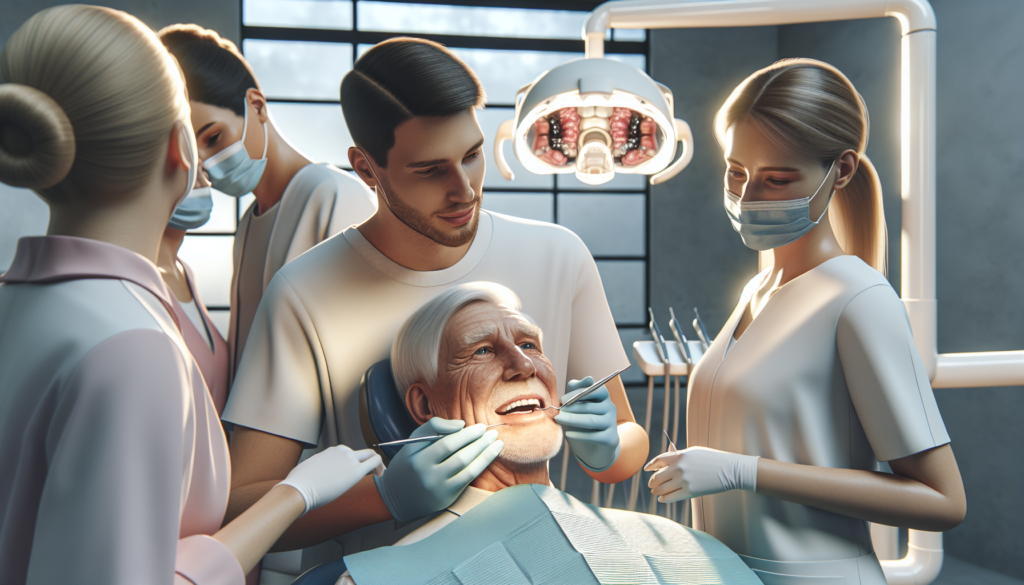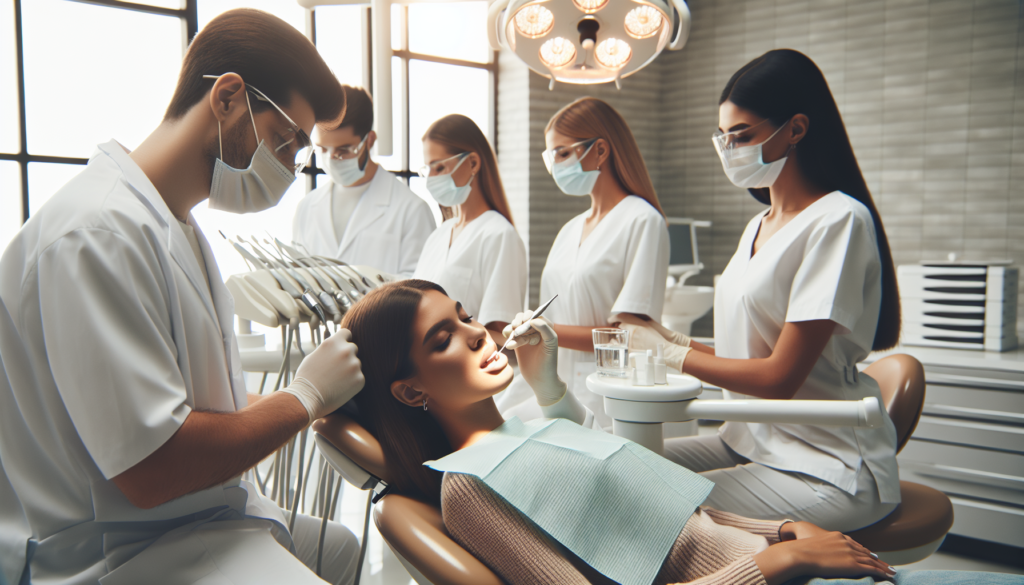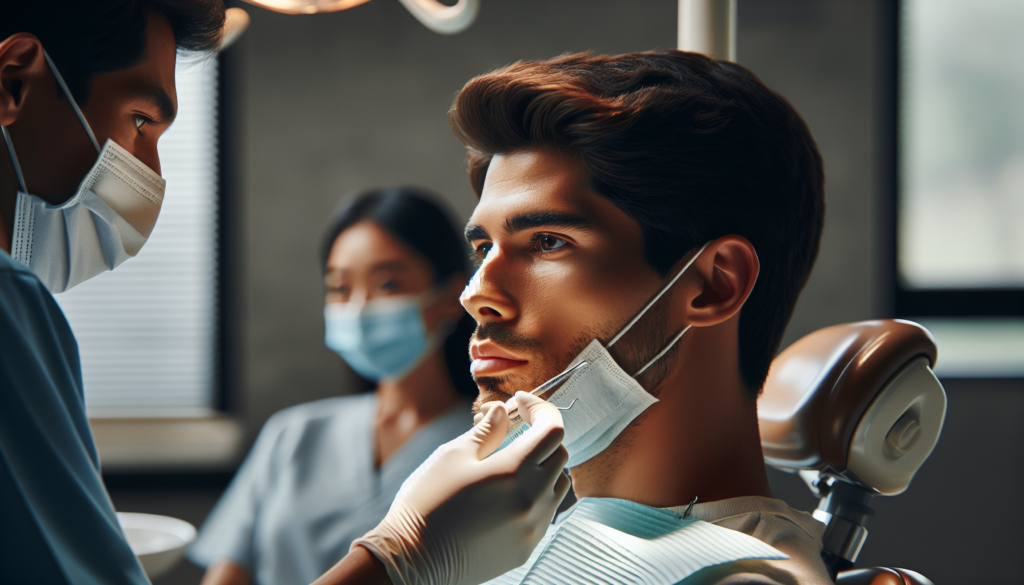Essential Facts and Prevention Tips for Oral Cancer Awareness
Just like small daily habits can transform your life, consistent dental habits can create a lifetime of confident, healthy smiles. Learn more in The Habit Method.
Understanding Oral Cancer and Its Impact
Oral cancer, also called mouth cancer, affects the tissues of the mouth, lips, tongue, and throat. According to the World Health Organization (WHO), more than 377,000 new cases of oral and lip cancer are diagnosed each year globally. Sadly, many patients are diagnosed at advanced stages, reducing survival rates and increasing treatment complexity. The good news? Early detection, awareness, and prevention can make a life‑saving difference.
Oral cancer is often preventable because many of its major risk factors—like tobacco and alcohol—are modifiable. Regular dental visits offer a unique opportunity for your dentist to inspect not just teeth and gums but also the soft tissues where early cancerous changes may occur. By understanding what increases your risk and acting early, you can protect your oral and overall health.
Common Risk Factors for Oral Cancer
Knowing the underlying causes is the first step toward effective oral cancer prevention. Here are the most common risk factors identified by public health and cancer research organizations:
- Tobacco use: Cigarettes, cigars, pipes, and smokeless tobacco are the top contributors to mouth cancer risk. All tobacco products contain carcinogens that damage DNA and hinder normal cell repair.
- Alcohol consumption: Heavy or frequent drinking amplifies oral cancer risk, especially when combined with tobacco. Alcohol dehydrates mouth tissues and enhances the absorption of carcinogens.
- Human papillomavirus (HPV) infection: Certain strains of HPV, commonly transmitted through oral contact, have been directly linked to cancers of the throat, tonsils, and base of tongue.
- Sun exposure: Prolonged exposure to ultraviolet (UV) radiation can cause lip cancer. Outdoor workers and people in sunny climates are most at risk.
- Genetic and lifestyle factors: Poor diet, weakened immunity, and a family history of cancer may predispose individuals to oral cancer, though lifestyle choices often play the largest role.
According to the American Cancer Society, ongoing research continues to confirm that eliminating these risks can substantially lower new oral cancer cases every year.
Early Warning Signs of Oral Cancer You Shouldn’t Ignore
One of the challenges with oral cancer is that early symptoms are often subtle and painless. However, being mindful of persistent changes can help you seek care before it’s too late. Visit your dentist or healthcare provider immediately if you notice:
- Non‑healing sores or ulcers in the mouth lasting more than two weeks
- Red or white patches on the gums, tongue, or inner cheeks
- Lumps, thickened tissue, or swelling in your cheek or jaw
- Persistent sore throat, hoarseness, or difficulty swallowing
- Numbness or pain in the mouth, tongue, or lips
Regular self‑checks and routine dental screenings help identify these signs early. National Institute of Dental and Craniofacial Research (NIDCR) studies consistently show improved outcomes for patients diagnosed at localized stages.
Proven Oral Cancer Prevention Strategies
Preventing oral cancer largely depends on controlling lifestyle factors and being proactive about your oral care. Evidence‑based prevention strategies include the following:
- Quit tobacco completely: There’s no safe level of tobacco use. Seek support from smoking cessation programs and dental teams familiar with nicotine replacement therapies.
- Moderate alcohol intake: Limiting alcohol greatly reduces cumulative risk. Hydrate well and pair your drinks with food when you do consume alcohol.
- Eat a nutrient‑rich diet: Fruits, vegetables, and foods rich in antioxidants strengthen the immune system and help cells repair microscopic DNA damage.
- Protect your lips from the sun: Always use lip balm with SPF 15 or higher, especially when outdoors for extended periods.
- Learn about HPV vaccination: The HPV vaccine, recommended for pre‑teens and adults up to age 45, protects against strains linked to several head and neck cancers.
Centers for Disease Control and Prevention (CDC) data support all of these measures as key components of oral cancer prevention.
Importance of Regular Dental Checkups and Self‑Examinations
Your dentist plays a critical role in early oral cancer detection. During routine exams, dentists perform visual and tactile screenings of your mouth, neck, and jaw to identify abnormal tissues.
- Dentist screenings: Dental professionals look for discolored patches, lumps, or lesions and may use adjunctive tools like fluorescence lights for better detection.
- At‑home self‑exams: Once a month, stand in front of a mirror under good light, use clean fingers to feel inside cheeks and along the tongue, and look for any unusual changes.
- Early detection benefits: When caught early, oral cancer survival rates exceed 85%, compared to below 50% for late‑stage diagnoses (National Cancer Institute).
Consistency saves lives. Make an oral cancer screening part of every dental checkup—most dentists include it as part of comprehensive examinations.
Healthy Lifestyle and Oral Hygiene Practices for Cancer Prevention
Beyond avoiding major risk factors, daily oral hygiene and overall wellness habits help maintain a healthy environment in the mouth. Combining sound dental care with general health awareness provides a powerful layer of protection.
- Brush and floss daily: Use fluoride toothpaste and replace your toothbrush every three months. Good oral hygiene reduces inflammation, supporting tissue health.
- Choose non‑toxic oral care products: Alcohol‑free mouth rinses and products with natural antimicrobial ingredients are gentle on soft tissues.
- Stay hydrated: A moist mouth promotes self‑cleaning and limits bacterial overgrowth.
- Manage stress and get sufficient sleep: Stress suppression can weaken the immune system, making it harder for your body to repair precancerous changes.
- Exercise regularly: Physical activity helps manage body weight and improve circulation, which positively affects oral healing and immunity.
Raising Awareness and Supporting Oral Cancer Initiatives
Community engagement plays a huge role in defeating oral cancer. By spreading knowledge and encouraging others to take preventive steps, you contribute to a wider network of health advocacy.
- Join annual Oral Cancer Awareness Month: April is an ideal time to schedule screenings and share education materials with friends or coworkers.
- Share trusted resources: Promote evidence‑based content from reputable organizations such as the Oral Cancer Foundation or your local dental association.
- Participate in local screenings or charity events: Many dental clinics offer free checkups during awareness months to reach underserved populations.
Frequently Asked Questions About Oral Cancer
1. Who is most at risk for developing oral cancer?
Individuals who use tobacco, drink alcohol frequently, or have high sun exposure are at greatest risk. HPV‑related oral cancers can also affect younger adults, so awareness is important for all age groups.
2. How often should I get screened for oral cancer?
Most dentists recommend an oral cancer screening at every six‑month dental visit. High‑risk individuals may need more frequent evaluations.
3. Are mouth ulcers always a sign of cancer?
No. Most mouth ulcers result from irritation, trauma, or infection and heal within two weeks. However, persistent sores that don’t heal should always be examined by a dentist.
4. Can oral cancer be cured?
Yes—especially when detected early. Treatment may include surgery, radiation, or chemotherapy depending on the stage. Early intervention vastly improves survival rates and quality of life.
5. What role does diet play in oral cancer prevention?
A diet rich in colorful fruits and vegetables provides antioxidants that help neutralize harmful free radicals and support a strong immune system. Balanced nutrition is a cornerstone of long‑term oral health.
Conclusion: Take Charge of Your Oral Health
Oral cancer awareness begins with small daily actions—quitting tobacco, moderating alcohol use, eating well, and scheduling regular dental checkups. Remember, early detection saves lives, and prevention is the most powerful treatment of all. Protect your smile, educate others, and make oral health a lifelong habit.
For more inspiration on building powerful, healthy habits that transform your daily life, explore The Habit Method.
Post Disclaimer
DentalUp is for educational purposes only and cannot accept personal dental information such as x-rays, photos, or treatment details. See full disclaimer here.





